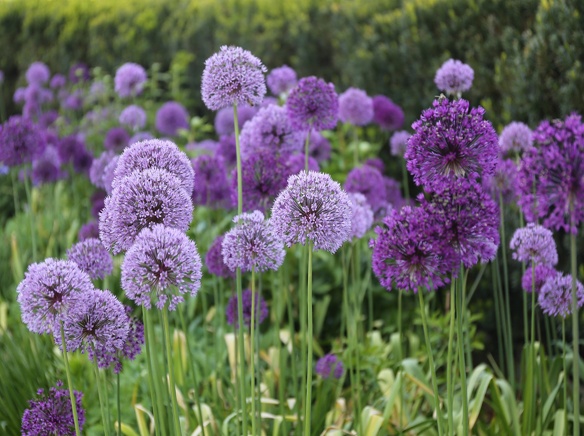Welcome spring and create continuous color for several months with a collection of spring-flowering bulbs. After planting in the fall, you’ll enjoy an array of flower colors that combine nicely with other spring-flowering trees, shrubs, and flowers.
Start the season with early blooming snowdrops. As winter fades watch for the dangling white flowers on six- to ten-inch-tall plants. Include these small flowers in rock gardens, mixed borders, and informal landscapes in sunny and part-shade locations.
Include a tapestry of colors with white, purple, lavender, and yellow crocus. Large Flowering Pickwick crocus offers unique blooms of white flowers with purple pinstripes. Its striped petals surround the red-orange stamens making this a standout in any planting. Crocus are a favorite of critters as well as gardeners so consider protecting them with a repellent as the leaves emerge in spring.
Look to early, mid, and late spring blooming tulips and daffodil varieties to maximize the color in your landscape throughout the spring. Check catalog descriptions and package labels to help you select an array of bloom times. Longfield Gardens’ Bloom Times Guide to Spring and Summer Bulbs (Longfield- Gardens.com) can also help you plan for three months of color in your landscape.
Look to Emperor, Kaufmanniana, and Greigii tulips for a bit of early spring color. Add some fragrance and showy, peony-like flowers with Double Early Foxtrot. This award-winning tulip has sturdy, weatherproof stems that support its loosely cupped flowers. Its petals contain a range of pink shades from white to deep rose.
Plant some Darwin Hybrid and Triumph tulips for mid-spring color in the garden. The two-toned flowers on Apricot Impression seem to glow and as a Darwin hybrid, they will have a long-lasting presence in your garden. Finish the spring season with fancy ruffled parrot tulips, fringed and lily tulips, and more single and double late bloomers. You’ll enjoy the extended show and late spring flowers to enjoy in arrangements.
Don’t overlook daffodils. You’ll find a variety of flowers with long, short, large, and split trumpets. Daffodil flowers may be one color, or the trumpet may be a different color than the color of the surrounding petals. Double varieties add a unique look to any garden. The early- to mid-spring blooming Cyclamineus Tete-a-Tete daffodil may be small in stature at seven inches but the bright yellow flowers and three blossoms per stem make it visible from a distance.
Combine some Armenian grape hyacinths with mid-spring blooming tulips, daffodils, and perennials. Their small, cobalt-blue, fragrant flowers last weeks and look good wherever they are planted.
Bridge spring and summer flower seasons in your garden with Purple Sensation allium. This late spring blooming bulb has four-inch round purple flowers high atop 24 to 30” stems. These reliable bloomers are critter-resistant like daffodils and grape hyacinths. Enjoy them in your garden, fresh bouquets, and dried flower arrangements.
Make this the year you select and do some fall planting of various early, mid, and late spring flowering bulbs. You’ll be rewarded with a burst of early spring color and sustained beauty from a mix of spring flowering bulbs.
Melinda Myers has written more than 20 gardening books, including the recently released Midwest Gardener’s Handbook, 2nd Edition and Small Space Gardening. She hosts The Great Courses “How to Grow Anything” DVD instant video series and the nationally syndicated Melinda’s Garden Moment TV & radio program. Myers is a columnist and contributing editor for Birds & Blooms magazine and was commissioned by Longfield Gardens for her expertise to write this article. Her website is www.MelindaMyers.com.













